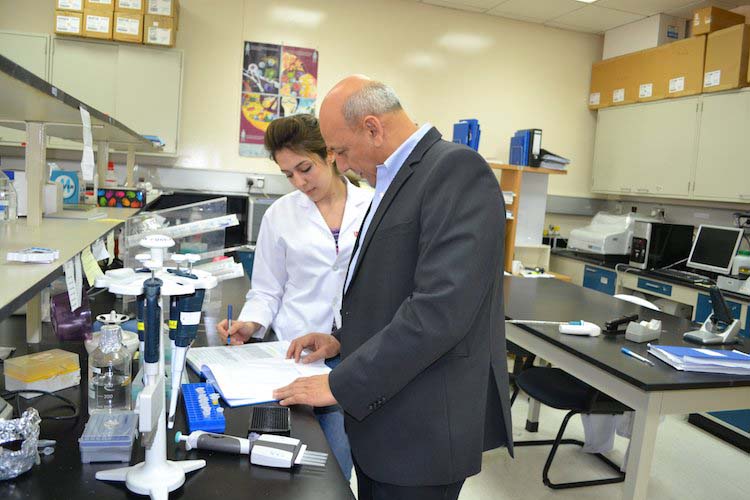A research team headed by Dr Omar El-Agnaf, Acting Executive Director of Qatar Biomedical Research Institute (QBRI), one of Hamad Bin Khalifa University’s (HBKU) three national research institutes, has been selected by the Austrian biotechnology company, AFFiRiS AG, to evaluate selected parameters in clinical trials on an innovative anti-alpha-synuclein immunotherapy-based approach to treating Parkinson’s disease.
Research carried out by Dr El-Agnaf’s team attracted the attention of AFFiRiS AG, a leading name in the field of developing immunotherapies that target chronic diseases with unmet medical needs, and led them to call upon the Qatar-based team to validate the target engagement of alpha-synuclein for the company’s first-of-its-kind Parkinson’s disease immunotherapy approach. The product has been developed in Europe by a team of scientists and its pre-clinical and clinical development has been supported by the Michael J Fox Foundation.
Using the team’s novel analysis techniques, the researchers at HBKU will assess the product’s ability to engage with the target, alpha-synuclein. QBRI’s scientists will explore novel biomarkers that facilitate early diagnosis and treatment of Parkinson’s disease and use the technique they have developed at HBKU to assess the magnitude of target engagement of this new immunotherapy-based compound.
On his team’s involvement with AFFiRiS AG, Dr El-Agnaf said that QBRI is committed to collaborative research with dedicated partners from around the world to help achieve the next landmark in Parkinson’s disease cure.
Parkinson’s disease remains a debilitating medical condition with no cure. Treatments that help patients with Parkinson’s typically work with individuals who were diagnosed with the disease while still in early stages. Despite good symptomatic treatment options, there is a substantial need for disease modifying agents and alternatives to the existing treatment options.’
He said that rather than only offer symptomatic improvements, which is the case with the treatment strategies currently available, the collaboration with AFFiRiS AG may take them closer to a disease modifying approach.
Dr El Agnaf’s group, which is based within QBRI’s labs within Education City in Doha, specialises in biomedical research that focuses on Parkinson’s disease and related neurodegenerative disorders. In recent years, the team has built a solid research portfolio, placing the institute’s lab and its published research at the forefront of neuroscience research in the global medical sphere.
QBRI has established itself as a leading disease-focused research institute in the Middle East. Currently, QBRI operates three research centres that target different diseases: the Neurological Disorders Research Center, the Cancer Research Center, and the Diabetes Research Center. By being part of the first clinical trial that focuses on the mode of action with the AFFiRiS compound for Parkinson’s disease, HBKU’s researchers are demonstrating how the university is committed to paving the way for new breakthroughs in medicine, addressing the key healthcare challenges faced today in Qatar and around the world.
To find out more about research at HBKU, please visit hbku.edu.qa.








